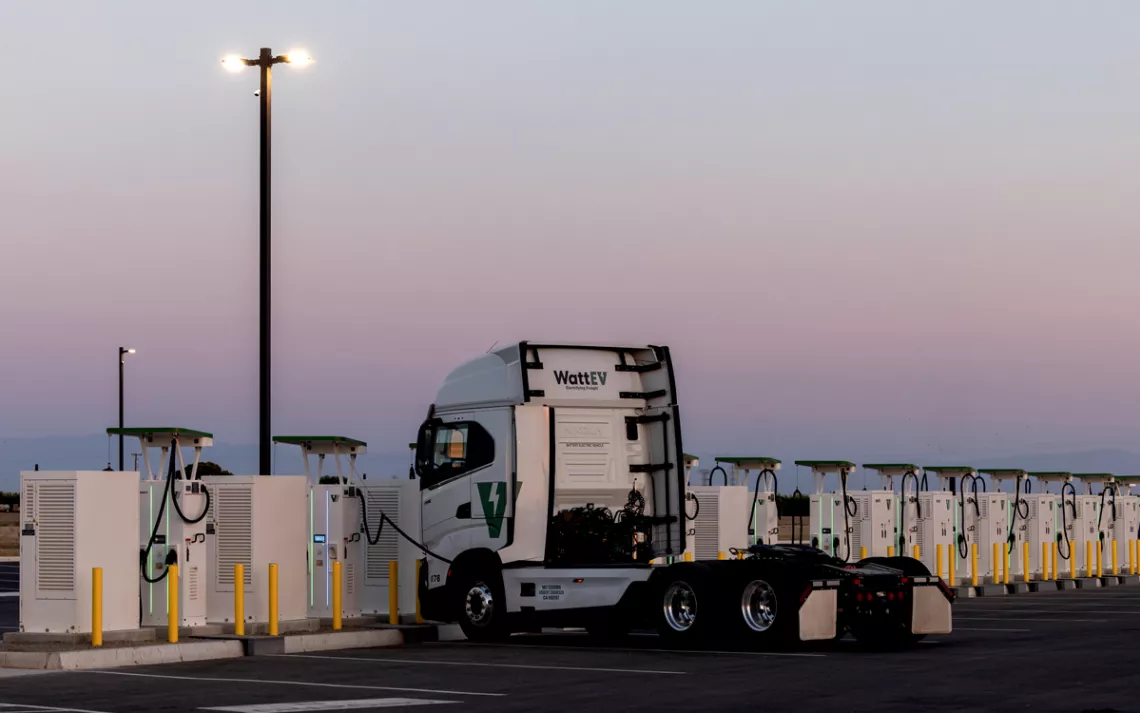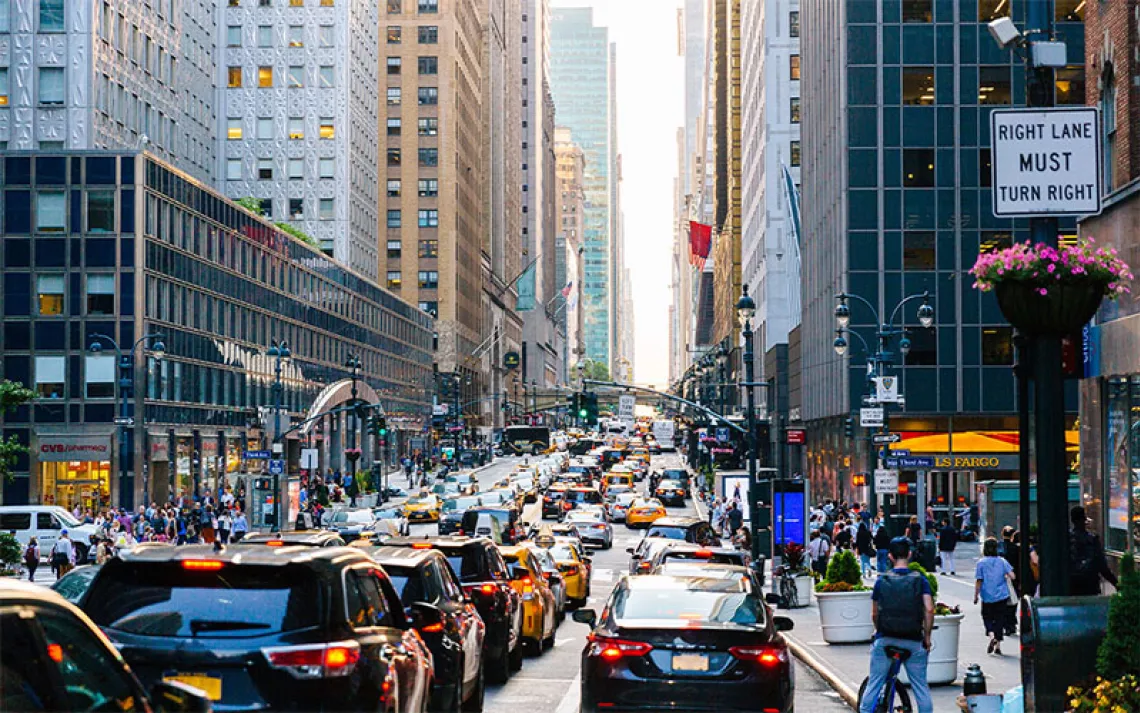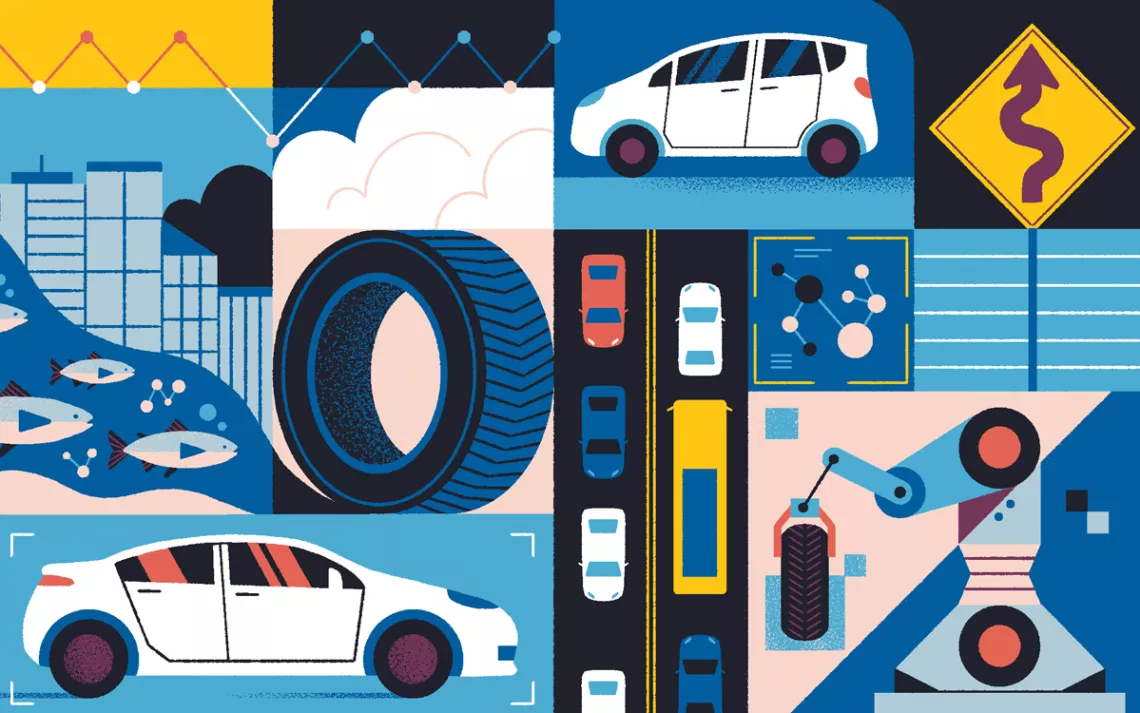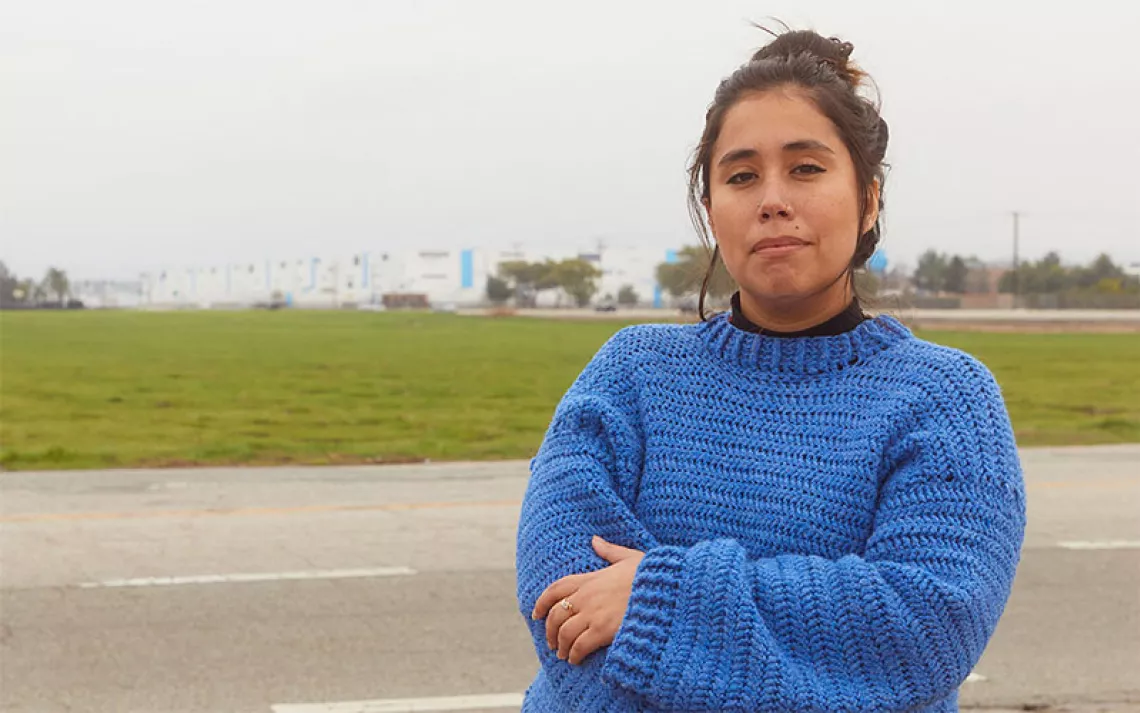No, This Latino Neighborhood in Denver Doesn’t Want Your 21-Lane Highway
You can’t mitigate a 50-year-old injustice by tripling it in size

Photo by Natalya Savka
“You know how when you go into any other part of Denver and you tell someone you live in Elyria or Swansea, they’re like, ‘Where’s that?’ Even though our neighborhoods are over 100 years old. Even though we’re only five miles from downtown.”
Swansea resident Brent Adams is talking to his neighbors at a Thursday night community meeting in a crowded, too-warm room. Organizers had hoped for 15 people, but more than 75 showed up. People are dragging folding chairs and unbuttoning coats while balancing salads and tamales on paper plates. (Flyers had advertised free dinner.)
“And you eventually have to say to them,” continues Adams, “‘You know where the Purina Cat Chow factory is?’” The room laughs. “It’s too true,” a man in the back whispers. He’s sitting on a pamphlet that reads, “Ditch the Ditch!” By the end of the meeting, he’ll be wearing a “Ditch the Ditch!” button. He’ll be chanting “Ditch the Ditch!”
The “ditch” is the Colorado Department of Transportation’s plan for the stretch of Interstate 70 that runs through Elyria-Swansea, and the reason for this meeting. CDOT plans to demolish the existing two-mile viaduct and rebuild the highway below ground level, tripling its width. The expansion would displace at least 56 households and worsen local air quality.
Locals are fighting the expansion in two ways: In March, they teamed up with the Sierra Club to sue the EPA, claiming the agency bent its own rules to enable the highway expansion to pass Clean Air Act standards. That lawsuit is pending.
More recently, in November neighbors partnered with the environmental law firm Earthjustice to file a civil rights complaint with the U.S. Department of Transportation. Elyria-Swansea is more than 80 percent Latino, and a third of its residents live in poverty. If the federal government finds that CDOT’s plan disproportionally affects poor, minority communities, the project’s federal funding could be revoked and the highway won’t be expanded.
The goal of this particular meeting isn’t to convince the Department of Transportation or the EPA that this community is worthy of something better than a 21-lane highway. It’s to convince each other.
“Why can’t we have something nice?” asks Candi CdeBaca [sic], leader of a neighborhood group called Cross Community Coalition. She is a tall woman who is confident enough to wear both heeled boots and a topknot, which make her even taller. Most of the audience already knows who she is, because it’s that kind of neighborhood. CdeBaca lives in a brick house whose basement her grandfather and his father dug out in 1949. The front door is yellow, in honor of her grandmother’s fondness for yellow roses. Two years ago, CdeBaca returned to Elyria-Swansea from Washington, D.C., where she worked on education policy for six years, to take care of her sick grandmother. After her grandmother died, CdeBaca could have moved anywhere in the world, but she chose to stay here.
Colorado DOT denies that its decision to expand through this neighborhood has anything to do with demographics. “We’re working on this project in Elyria-Swansea because that’s where the interstate already is,” says Rebecca White, CDOT’s I-70 project spokesperson.
The interstate’s current location is exactly what CdeBaca takes issue with. “This highway has been an injustice ever since it was put in more than 50 years ago,” she tells the crowd. “No one in Denver wanted it. But they chose to put it here because we were an immigrant community. We had less political and financial resources to fight it.”
CdeBaca blames the highway for depressing housing prices and scaring away businesses, including the neighborhood’s only two supermarkets. Even before it was built, Elyria-Swansea had a pollution problem—its soil was filled with lead and arsenic, the legacy of two smelting plants. The highway made pollution worse. In 2014, Denver’s Environmental Health Department report found that children living near I-70 had a 40 percent greater rate of severe asthma-related urgent care visits than kids from other parts of Denver. CdeBaca has asthma herself, the reason she’s always coughing.

Sign up to receive Sierra News & Views
Get articles like this one sent directly to your inbox weekly.
With this action you affirm you want to receive Sierra Club communications and may vote on policy designated by the Sierra Club Board.
White says that CDOT’s plan already includes “an unprecedented level of mitigation.” The agency would give about $25 million back to the community in the form of housing assistance, storm windows and air conditioners for homes within a block of the freeway, and a four-acre park atop part of the highway next to Swansea Elementary.
“So that our babies can play in pollution, above thousands of idling engines,” CdeBaca quips.
Across the room, others voice similar skepticism: Will the city really maintain the proposed park, when it has failed to do so for the neighborhood’s existing parks? Will the air conditioners actually filter out pollutants from construction? Will their children be forced to play inside for eight years, the estimated length of construction? Will CDOT’s housing assistance be enough for those displaced to find housing in other parts of Denver, where prices are skyrocketing?
CdeBaca isn’t in danger of being displaced; her house is more than three blocks away, outside the range of the gallon-size bottles of diesel fuel injector and other highway trash that litters the yards of residents living directly under the freeway. She says that she’s staying, no matter what. Last year, she single-handedly renovated her house, making it a reflection of what she thinks this neighborhood could be.
At the meeting, CdeBaca and fellow organizers play an animated video with a gentle soundtrack. This is their vision for Elyria-Swansea: They propose that the CDOT redirect most traffic to I-270 and I-76, which circumvent Denver through less populated areas. They want the existing I-70 bridge to be replaced with a boulevard. They imagine a bike path and a median filled with trees.
“Don’t we deserve something for all the years we dealt with the crap they dumped on us?” she asks the room. A woman empties her pockets into a collection jar. A man commits to knocking on doors. “Ditch the Ditch!” the people of Elyria-Swansea say sporadically, once nearly in unison. They’re convinced.
 The Magazine of The Sierra Club
The Magazine of The Sierra Club



